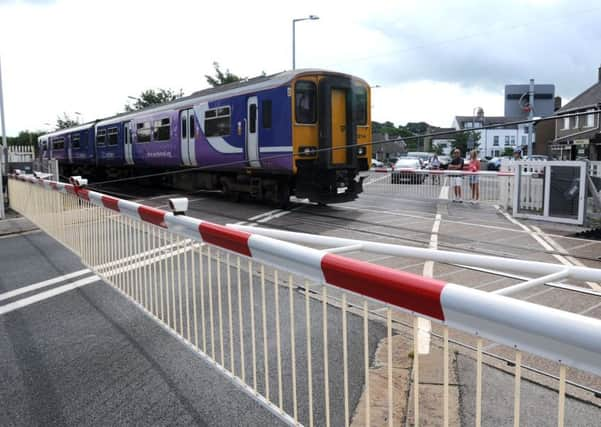Tyres placed on tracks at Bare Lane could have derailed train


British Transport Police were called to the level crossing at Morecambe at 1pm on May 1.
On Twitter BTP Lancashire tweeted out: “Report received of three children placing tyres and a sleeper on the line in the path of an approaching train. #RealityCheck”
Advertisement
Hide AdAdvertisement
Hide AdOfficers attended and found that tyres had been placed on the tracks.
A search of the area took place but no one was found.
Officers are making enquiries and investigating the trespass.
A spokesman for British Transport Police said: “Fortunately, no one was injured in this incident, but if a train had struck the tyres on the line, the consequences could have been incredibly serious and endangered the lives of everyone on the train. It is incredibly dangerous to trespass on the railway.
PC Iain McLaren from BTP in the North West said: “Every single day we are called to the tracks because a train driver has had to sound their horn or apply their emergency brake in a desperate bid to avoid youths on the line, who then run off, seemingly unaware of the danger they have put themselves in.
Advertisement
Hide AdAdvertisement
Hide Ad“We continue to do all we can to keep youngsters safe by patrolling areas where we know they’re likely to trespass and prevent them from doing so.
“However, we cover thousands of miles of track and we cannot tackle this issue alone. That is why we are urging parents and young people to heed this warning and take a reality check when it comes to trespass. It’s not a game: they are real tracks, with real trains and real-life consequences.”
Last year alone there were around 1142 incidents where people risked their lives on the rail network in the North West - a 22 per cent rise on the previous year.
In 2016, more than 90 children were caught trespassing by police in the region, with boys aged 14 to 16 being stopped the most .
Research also shows young people are more likely to take a risk on the tracks, with seasonal peaks in incidents coinciding with the spring and summer school holidays.